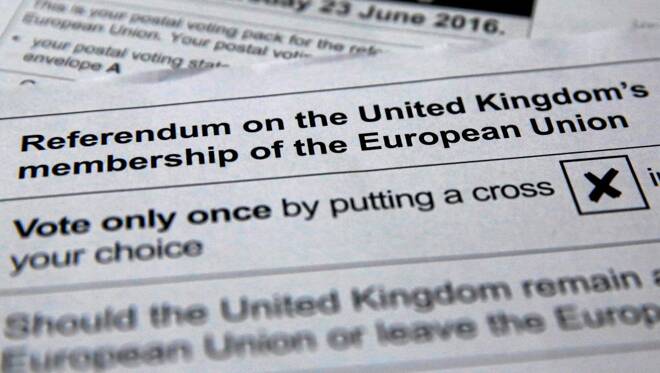Advertisement
Advertisement
The Day Of & The Day After The Brexit Vote
By:
Many people think that the day after the UK referendum that Britain and the Eurozone will see radical changes with borders closing and business drawing to
Many people think that the day after the UK referendum that Britain and the Eurozone will see radical changes with borders closing and business drawing to a halt, but that is a big fallacy. Regardless of the outcome, June 24th will be a day like any other day except the campaigning will have ended and the unknown will not be the decided. The fact is that there are and have always been mechanisms in place to handle changes in the relationship between the Eurozone and its members. Under Article 50 it could take 2 years for the UK to leave and for most changes to actually occur. If the vote is to remain, there will still be intense negotiations between David Cameron and the EU commission, even though he came back months ago before the approved the referendum with a new deal for the Brits. Back in January and February David Cameron sought an agreement with other European Union leaders to change the terms of Britain’s membership. He says the deal, which will take effect immediately if the UK votes to remain in the EU, gives Britain “special” status within the 28 nation club, and will help sort out some of the things British people say they don’t like about the EU, such as high levels of immigration and giving up the ability to run our own affairs.
Prime Minister David Cameron promised to hold one if he won the 2015 general election, in response to growing calls from his own Conservative MPs and the UK Independence Party (UKIP), who argued that Britain had not had a say since 1975, when it voted to stay in the EU in a referendum. The EU has changed a lot since then, gaining more control over our daily lives, they argued. Mr Cameron said: “It is time for the British people to have their say. It is time to settle this European question in British politics.”
After weeks of uncertainty about whether the polls were moving one way or another, there now seems to be a clear picture: there has been a shift to leave.
Four Brexit polls were published just days ago, two polls by ICM for the Guardian, one by YouGov for the Times, and one by ORB for the Daily Telegraph.
All of the pollsters are showing leave in a stronger position than they were a fortnight ago. And both of ICM’s polls – phone and internet – now have leave ahead by 5 points. In the YouGov poll the lead is 7 points.
The ORB figures in the referendum tracker are their ‘turnout weighted’ ones. They show remain ahead but by a narrower margin than they have found in recent phone polls.
It seems that immigration and open borders are the biggest issue for voters jumping into the “Leave” camp. The recent terrorist attacks have sparked a great deal of any immigration sentiment. It is impossible to control immigration as a member of the EU. Public services are under strain because of the number of migrants. Therefore, High immigration has driven down wages for British workers. Total net migration to the UK is running at over 300,000 a year despite the government’s target of cutting it to under 100,000. The most recent official figures put net migration from EU countries to the UK at 184,000 a year and non-EU at 188,000 EU citizens who have the right to live and work in any member state.
Terror attacks in Paris and Brussels have brought security to the centre of the debate. The UK is not part of the Schengen borderless travel area but EU citizens have the right to free movement. Entry to Britain can be blocked if public security is at stake. Being in the EU makes it easier for terrorists to come in to the UK. Supremacy of EU courts makes it harder to deport violent criminals and Britain would still co-operate with other European countries to fight terrorism after Brexit, as currently happens with the US.
If the UK votes to exit from the European Union, the Swiss currency could be your savior if you’re looking for cover from the fallout.
“Brexit’ would be a colossal event for Europe. “We believe it would drive [the pound] weaker by 15%-20%, and would likely drag the [euro] lower with it,” HSBC currency strategists led by David Bloom said in a research note published March 15.
According to Marketwatch, the pound has already suffered from uncertainty surrounding this summer’s vote result. During last month, the pound hit a seven-year low against the greenback, briefly falling below $1.39 after London Mayor Boris Johnson said he’s backing efforts toward the U.K. leaving the EU. Investors may be tempted to sell the pound as a hedge. But if voters decide they want to stay in the EU, sterling “would rally strongly, making the hedge a potentially expensive exposure,” HSBC said.
About the Author
Barry Normanauthor
Advertisement
